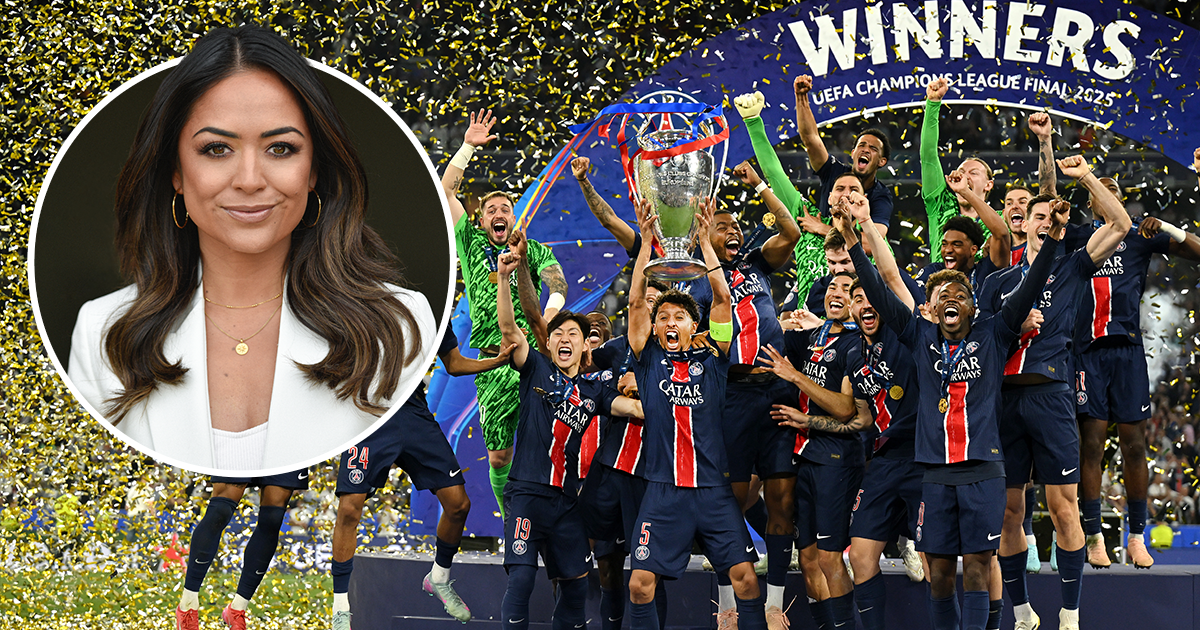Klopp at Liverpool, five months on: how victory over United could kick-start a new Reds revolution
Alex Hess evaluates the German’s Anfield adventure 35 games in, as his Merseysiders bid to topple their M62 rivals in Europe...
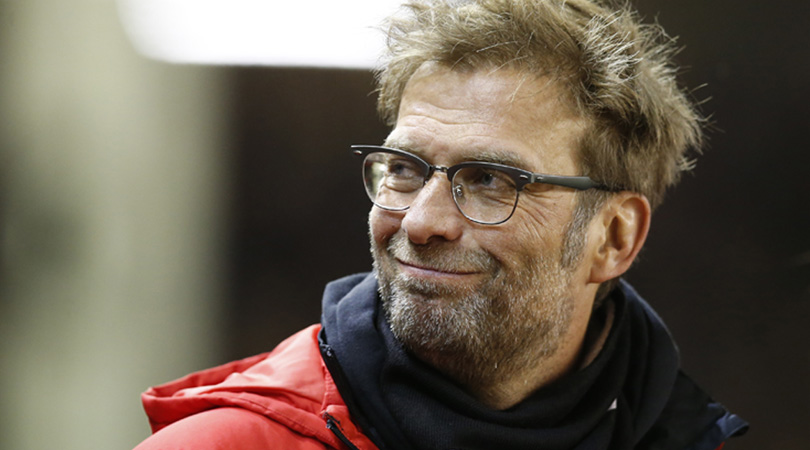
Liverpool are approaching the end of a muddled season, their first under the management of an in-vogue European who brought Goliath-toppling success in his home nation.
He can look back over an underwhelming debut campaign as a legacy of mismanagement from before his time, not least the succession of botched big-money transfers that saw his predecessor get the axe. His squad is a mixed bag containing a shaky keeper, some promising but raw midfielders, the odd ephemeral playmaker.
They reached the League Cup final, but lost, and seesawing league results have left a top-four finish improbable. But the growing hope of glory in Europe – and the Champions League place that would come with it – could yet see the season rendered a success. For that to happen, they must overcome bitter domestic rivals under the floodlights, over two legs.
The year is not 2016, but 2005. And we all know how that one turned out.
Liverpool’s Champions League win over Chelsea became more than just a pick-me-up, it provided a springboard to the triumph of Istanbul
Liverpool’s Champions League win over Chelsea became more than just a pick-me-up, it provided a springboard to the triumph of Istanbul and gave a hopeful fanbase cause to believe that the new man’s project was worthy of their full-blooded support.
Belief that the game’s financial powerhouses could, in fact, be felled by intangibles like character, togetherness and resilience. Sound familiar?
Fleeting joy
The best features, fun and footballing quizzes, straight to your inbox every week.
This time around, the forthcoming last-16 Europa League tie doesn’t have quite the same gravitas as that semi-final. But as Liverpool prepare to face Manchester United on Thursday night, the wider context is eerily similar.
In five months, he has brought about enough distinctly Klopp-tinged big-game showings to validate the hope that he will, given time, construct a team who exceed the sum of its parts
While few Anfield regulars doubt Klopp’s ability to turn the creaking ship around in the long-term, a win would offer something to hang their hats on in the here and now. There is also the strong sense that it would provide the injection of momentum required for what is an encouraging but wildly undulating work in progress.
To come to any sort of conclusive judgement on Klopp’s Liverpool tenure now would be absurdly premature. But with 35 games at the helm, he has amassed a body of work substantial enough to take some proper pointers from.
In five months, he has brought about enough distinctly Klopp-tinged big-game showings to validate the hope that he will, given time, construct a team who exceed the sum of its parts and who can compete against the best and wealthiest.
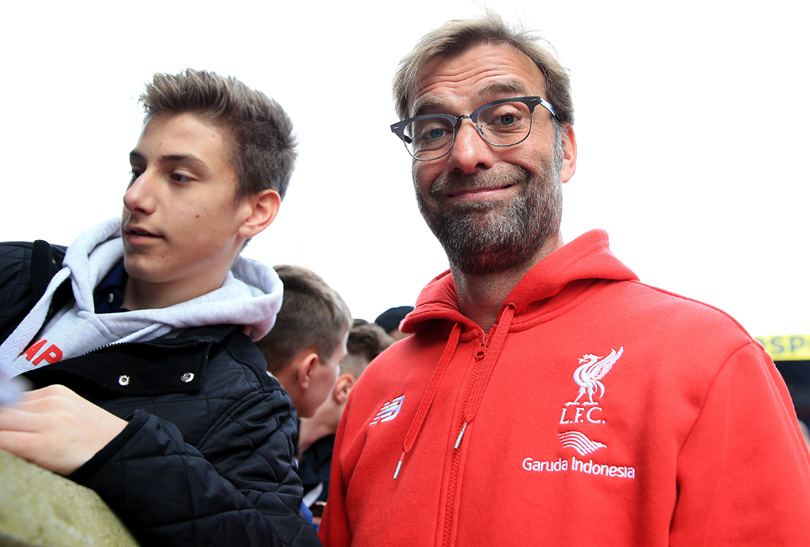
P20 W9 D5 L6
P6 W3 D3 L0
P9 W4 D3 L2
Both league wins over Manchester City and the one at Stamford Bridge (aggregate score: 10-2) carried all the hallmarks of a classic Klopp victory: a stronger opponent left punch-drunk by waspish pressing and breakneck attacking play.
The six-goal routs away at Southampton and Aston Villa were further (if fleeting) evidence of a refined plan coming together, and the last-kick results clawed back against Arsenal and Norwich the mark of a side inflected by their manager’s refusal to bow to defeatism.
Fringe festival
Klopp has also confounded expectations of individuals. Back in October, Adam Lallana’s lightweight frame and languid style had him widely touted as incompatible with his new manager’s high-octane approach.
Dejan Lovren has spent much of the last six months playing with a dependable sturdiness that has prompted many a disbelieving double-take
In fact, Liverpool’s biggest performances since then have not only featured Lallana but been inspired by him, his high-tempo harrying a crucial cog in Klopp’s famed pressing machine.
Divock Origi came into this season fresh from selection in L’Equipe’s “worst team in Ligue 1”, but Klopp’s deployment of him in recent weeks – using his athleticism and endeavour to foster space for Liverpool’s raft of craftsmen – has been canny. There is a good argument to be made that right now it is Origi, rather than the fit-again Daniel Sturridge, who leads the line in Liverpool’s most effective XI.
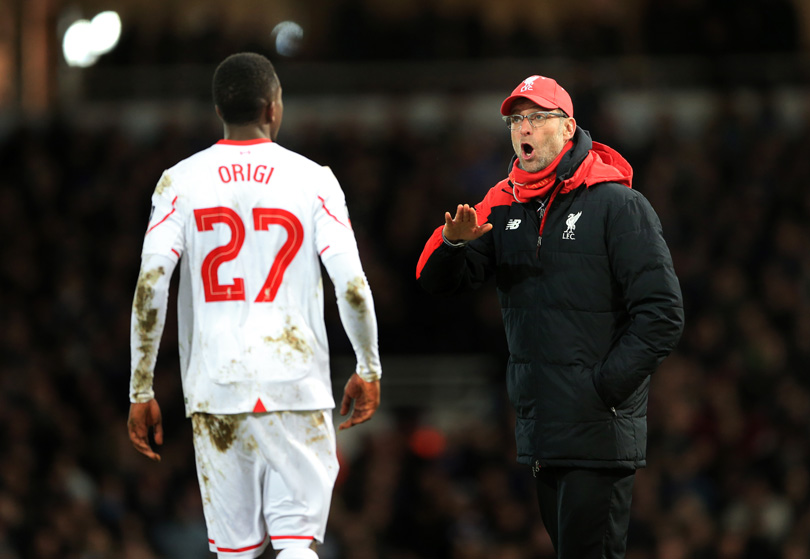
At the other end of the pitch, Dejan Lovren has spent much of the last six months playing with a dependable sturdiness that has prompted many a disbelieving double-take, while Kolo Toure has proven a steady deputy when called on.
It all speaks not only to an admirable refusal to write anyone off, but also to an ability to extract high-grade output from mid-range players. It is perhaps a micro-scale example of his harnessing of the underdog spirit.
Tough road ahead
Muscular performances away to the big-hitters may have been one feature of Liverpool’s season, but equally prominent has been a capacity for insipid showings against the less glamorous sides
And yet there’s much that Klopp has struggled with and his first season in England has, like Benitez’s, offered proof that it’s not just players who need a year to adapt to the league’s cosmic demands.
Muscular performances away to the big-hitters may have been one feature of Liverpool’s season, but equally prominent has been a capacity for insipid showings against the less glamorous sides.
George Orwell said of Adolf Hitler that "if he were killing a mouse, he would know how to make it seem like a dragon". Klopp relies on that same little-guy resolve but, unlike the Fuhrer, has struggled to rally his troops when victory is merely what’s expected.
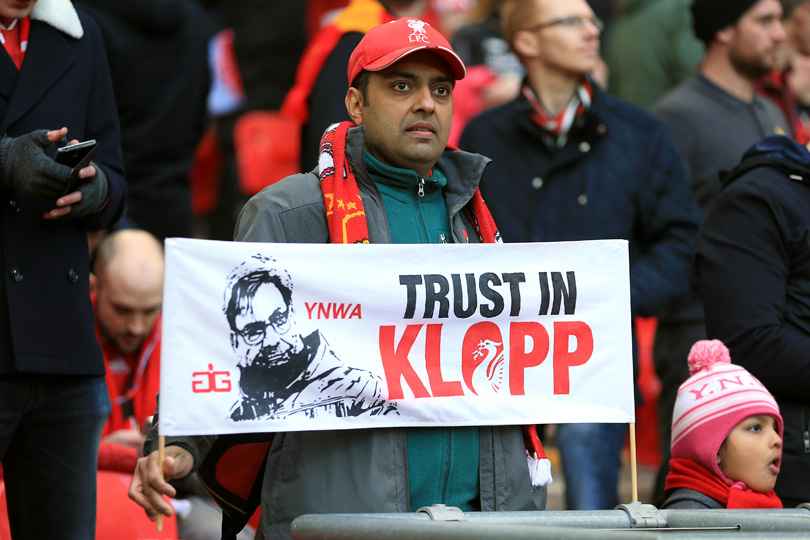
Southampton, Crystal Palace, West Brom and Sunderland have all departed Anfield with valuable points. Watford, Newcastle and West Ham have all administered resounding defeats on their own turf.
It’s a campaign that has called to mind Brendan Rodgers’ reference to “trying to build an aircraft while it’s in flight”. England’s unrelenting fixture list (Liverpool played 10 full fixtures during Dortmund’s winter break) has compounded some rather hideous luck with injuries and the lack of any opportunity beyond January’s hurried transfer window to re-tailor the squad in his image.
All of which provides a degree of mitigation for the way that Liverpool’s results have fluctuated, much like they did in 2004/05.
While the dreary losses may negate the fearless wins in terms of points on the board, the former are far more likely to be ironed out in the adaptation process
The lesson to be taken from then is that while the dreary losses may negate the fearless wins in terms of points on the board, the former are far more likely to be ironed out in the adaptation process while the latter should, in theory, function as a sign of things to come.
The coming summer will once again be crucial for Liverpool. They must not only break the habit of an era by using their transfer funds to strengthen rather than self-harm, but also strike the balance between making the substantial changes their patchy squad needs without embarking on an overhaul that obliges another dreaded season of transition.
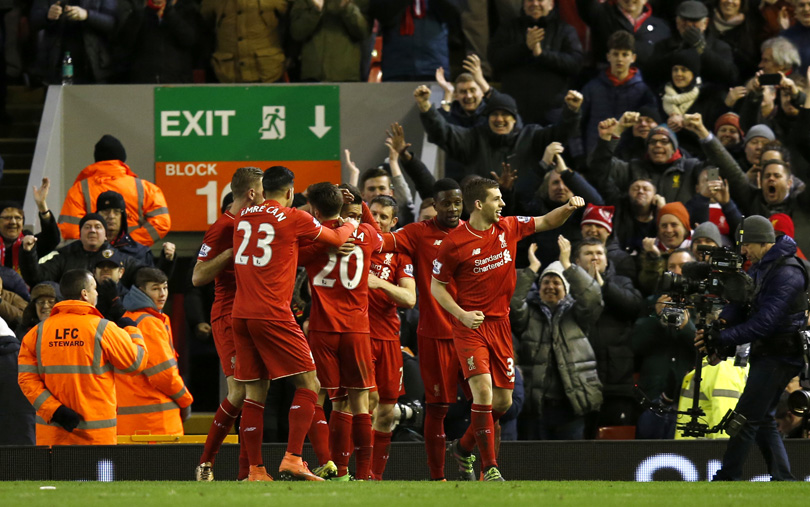
Against a recent tradition of disastrous last-minute panic buys, the initiative suggested in Joel Matip’s early capture is encouraging.
Twelfth men
Klopp’s formula relies on the channelling of the home crowd, casting them as participants in their club’s success rather than merely spectators to it
One hurdle that Klopp may not have been expected is the relative detachment of the fans. He may not say so publicly but there is undoubtedly a marked contrast between Germany, where fan culture retains its primal edge, and England, where crowds often look to take their inspiration from their team rather than vice versa.
At many of the bigger clubs – and Liverpool is certainly one – the coldly corporate stance of those in the boardrooms has engendered a lingering sense of resentment on the terraces. This runs in direct opposition to Klopp’s formula, which relies on the channelling of the home crowd, casting them as participants in their club’s success rather than merely spectators to it.
In this respect, the sense of civil unrest at Anfield which peaked with last month’s protest against ticket prices, is more of a hindrance for Klopp that it would be for another manager.

It was also emblematic of a broader process of disengagement that he will have to reverse if he is to build an aura around Anfield to compare with Dortmund’s famed ‘yellow wall’. Restoring the joy and relish to Anfield is no small task – and yet you don’t doubt that Klopp, with his infectious sense of kid-at-Christmas excitement, is one of the few figureheads capable of doing it.
Few managers would get away with publicly calling out their own fans within weeks of starting the job
On this issue, he has already exploited his status shrewdly. Few managers would get away with publicly calling out their own fans within weeks of starting the job, but Klopp’s standing as media darling and cult hero framed his criticism of Anfield’s early leavers as a call for unity rather than a catalyst for division.
Likewise, his leading of his squad to salute the crowd after a late equaliser against West Brom was largely reported as an act of gratitude rather than grandstanding.
Action speaks loudest
All in all, then, Klopp’s debut campaign at Anfield, as it ticks towards its conclusion, is taking a familiar form: bitty and frustrating, but with enough glimpses of what is a proven winning formula to render the hope of clambering back onto that perch as something more than a delusion of grandeur.
So far, though, any notion of a sustained resurgence – certainly of silverware – exists only in theory.
A win at Anfield on Thursday would not be as momentous as the one 11 years ago, but it could still fulfil a similar function: the first meaningful step towards putting that theory into practice.
